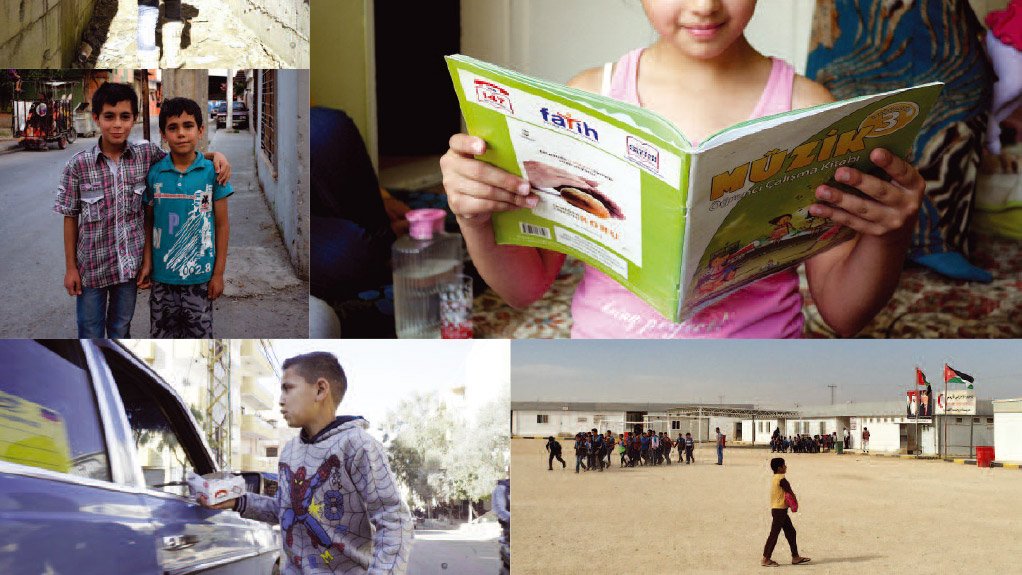- Following the Money – Lack of Transparency in Donor Funding for Syrian Refugee Education1.44 MB
Since 2011, violence in Syria has forcibly displaced at least 1.6 million school-age children to other countries in the region. Before the conflict, more than 90 percent of Syrian children attended primary school and 70 percent attended secondary school. By the fall of 2015, despite international support to prevent a “lost generation,” only around 50 percent of Syrian refugee children in the region were enrolled in school.
Host countries and foreign donors are crucial partners if Syrian refugee children are to realise their right to education. But Human Rights Watch’s previous research in Turkey, Lebanon, and Jordan has shown that host country policies have created obstacles to their education, including restrictions that exacerbate poverty and add to pressures for children to work or marry rather than go to school. In addition, since local resources are insufficient, Syrian children’s access to education also depends on the effective delivery of adequate international aid, which has often been lacking.
This report tracks donors’ fulfillment of their pledges to support education for Syrian refugees in 2016. It focuses on pledges made at a major conference in February 2016 in London, where donors—the six largest were the European Union, US, Germany, United Kingdom, Norway, and Japan—committed to provide $1.4 billion in funding for education inside Syria and in neighbouring countries, and agreed with refugee-hosting countries to enroll all Syrian refugee children, as well as vulnerable children in host communities, in “quality education” by the end of the 2016-2017 school year.
Overall education funding in 2016 exceeded the conference’s target of $1.4 billion, and enrolment has increased since then. However, at least 530,000 Syrian children are still not receiving any education in Turkey, Lebanon, and Jordan—the three countries hosting the largest numbers of Syrian refugee children—and donors missed the specific funding targets for Jordan and Lebanon that conference participants endorsed.
For example, the London conference put Lebanon’s annual education needs at $350 million, yet the United Nations reported that, in 2016, Lebanon received only $253 million for education under a UN-coordinated aid plan—a $97 million shortfall. The six donors reported that in 2016 they gave $223.4 million for education in Lebanon.
Similarly, Jordan did not receive enough education funding, but different sources offer widely differing accounts of how much it did receive. London conference participants agreed that Jordan needed $1 billion over three years for education, of which Jordan budgeted $249.6 million for 2016. But by the end of the year, Jordan reported that it had received just $179.1 million for education, a $70.5 million shortfall. An update that Jordan published later stated that the total figure was $208.4 million, a $41.2 million shortfall. Yet, according to the six donors, they gave $379.2 million to education in Jordan in 2016.
Of the funding that was delivered, much came late, rather than well before the school year as London conference participants had agreed: as of early September 2016, funding for education in Jordan was still 69 percent short of targets under a UN-coordinated aid plan, and 47 percent short in Lebanon. The failure to deliver aid before the school year limits school systems’ capacity to hire and train teachers, purchase textbooks, and plan student intake, with the result that fewer Syrian children are able to realise their right to education.
Report by Human Rights Watch
EMAIL THIS ARTICLE SAVE THIS ARTICLE ARTICLE ENQUIRY
To subscribe email subscriptions@creamermedia.co.za or click here
To advertise email advertising@creamermedia.co.za or click here











